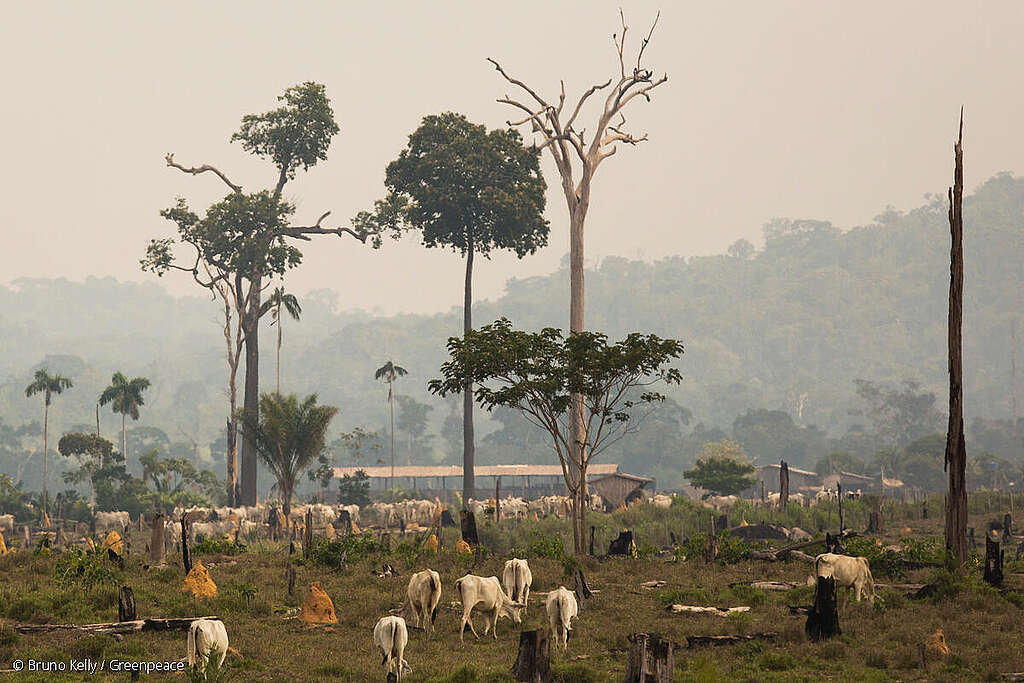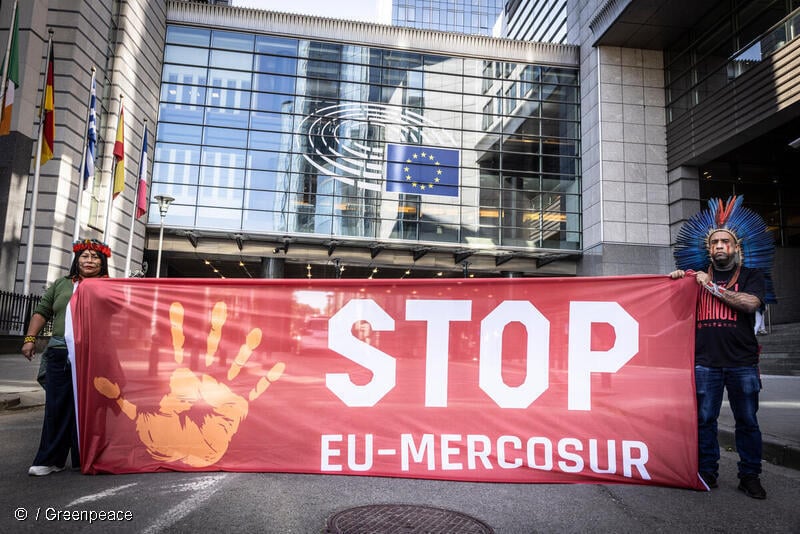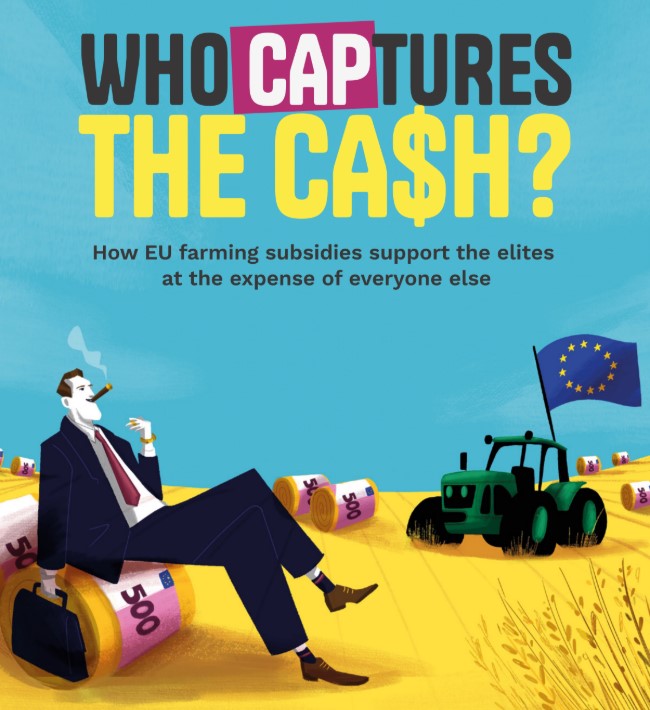Brussels – New estimates by the Dutch research institute Profundo, published today by Greenpeace Netherlands, show that the proposed trade deal between the EU and the Mercosur countries of Brazil, Argentina, Paraguay and Uruguay will greatly benefit billionaire food giants like the Brazilian company JBS, at the expense of nature, climate and the livelihoods of smallholder farmers and ecological farmers in the EU and in Mercosur.

According to Profundo’s research, JBS, the largest meat producer on earth, could gain €1.7 billion in extra profits before tax and €1.2 billion after tax by 2040 if the EU-Mercosur deal is adopted. [1] This represents 8% of JBS’s current market capitalisation and is close to the average net profit that JBS makes in an entire year of its global operations. [2]
Greenpeace EU trade campaigner Lis Cunha said: “The EU-Mercosur deal will line the pockets of JBS, a meat giant linked through its supply chains to widespread nature destruction, human rights abuses and enormous climate pollution. Politicians should not enable billionaires like JBS to expand their predatory business models. Instead governments must invest in agroecological farming practices, support ecological farmers and those who want to adopt more sustainable farming methods.”
Profundo’s calculation took into account the potential profits that JBS could make as a result of the reduction in tariffs on meat provided by the EU-Mercosur deal, as well as potential profits due to the possibility that JBS could increase the volume of its meat exports to the EU as a result of the EU-Mercosur deal.
Their detailed methodology and full figures can be found here.
The Profundo research comes just as JBS minority shareholders have approved the company’s proposal to list shares on the New York Stock Exchange, a move challenged by Greenpeace International. [3, 4, 5] The listing is paired with a restructuring, relocating JBS’s parent company from Brazil to the Netherlands. The restructuring also increases the voting control of the billionaire Batista brothers from 48% to almost 85%, limiting the ability of minority shareholders to influence the company on environmental or human rights issues. In April, it was reported that a $5 million donation by Pilgrim’s Pride, a poultry company owned by JBS, was the largest given to US President Donald Trump’s inauguration fund. [6]
What next for the EU-Mercosur trade deal?
In December 2024, after more than two decades of talks, the EU and Mercosur (Brazil, Argentina, Paraguay and Uruguay) concluded negotiations for a bilateral trade agreement.
The agreement still needs to be ratified in the EU and in Mercosur countries, but it is facing opposition from several parliaments and governments due to the deal’s expected impacts on forests, the climate and farmers. A vote by EU national governments is expected in September 2025, and in the EU Parliament some weeks later.
Greenpeace is calling on policymakers to reject the EU-Mercosur deal and instead stand up for a strong EU Deforestation Regulation and ensure it is strictly enforced from the end of 2025.
Notes:
[1] JBS (undated). Our Business, website, JBS SA, accessed Sep 19, 2024
[2] Market capitalisation as of 8 April, 2025; JBS average net profit for 2022-24 has been €1.4bn according to Profundo
[3] Greenpeace International, An open letter from Greenpeace International to JBS minority shareholders, 19 May 2025
[4] JBS, ‘JBS Completes SEC Registration and Calls Shareholders’ Meeting to Vote on Dual Listing’, 23 April 2025
[5] https://ri.jbs.com.br/en/cvm-and-sec-filings/notices-to-shareholders-and-material-facts/
[6] Mother Jones, ‘Corporate Chiefs Gave Trump’s Inaugural Committee $250 Million. Benefits Abound’, 18 April 2025
Contacts:
Lis Cunha, Greenpeace EU trade campaigner: +32 471 01 37 08 [email protected]
Greenpeace EU press desk: +32 2 274 1911, [email protected]
For breaking news and comment on EU affairs: Bluesky
Greenpeace is an independent global campaigning network that acts to change attitudes and behaviour, to protect and conserve the environment and to promote peace. We do not accept donations from governments, the EU, businesses or political parties. Greenpeace has over three million supporters, and 26 independent national and regional organisations with offices in more than 55 countries.
EU Transparency Register: 9832909575-41



